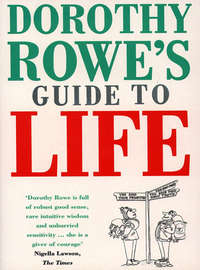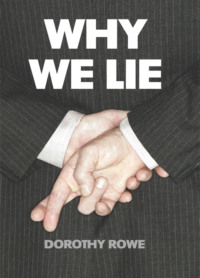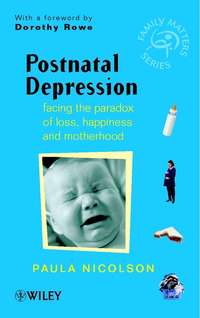
Полная версия
Breaking the Bonds
So, whatever you have done to try to discover what depression is and how you might bring it to an end, all that has happened is that you have become more and more confused, and when we are confused we feel powerless and helpless.
The aim of this book is to help you sort out your confusion and regain that which is rightly yours, the power to understand yourself and the society in which you live, so that you can make the best decisions about how you should live your life. With such power we can not only understand the causes and the purposes of depression but, more importantly, free ourselves from its prison and live life joyously, hopefully and freely.
To do this, we begin by understanding our own real, lived experience.
It is our own real, lived experience which leads us into the prison of depression. It is not a gene, or our hormones, or our dysfunctional and illogical thinking, our lack of faith, or our complexes and inadequacies which have brought depression upon us, it is what has happened to us and, most importantly, what we have made of what has happened to us; it is the conclusions we drew from our experience.
That set of conclusions which leads us, finally, into the prison of depression was not drawn illogically, or fantastically, or crazily, but were the correct conclusions to draw, given the information we had at the time.
If, when you were a child, all the adults whom you loved and trusted were telling you that you were bad and that if you didn’t mend your ways terrible things would happen to you, you wisely and correctly drew the conclusion that you were bad and had to work hard to be good. If, when you were a child, all the people you loved and trusted left you or disappointed or betrayed you, you wisely and correctly drew the conclusion that you must be wary of other people and that you should never love anyone completely ever again. You were not to know that if we grow up believing that we are intrinsically bad, and that other people are dangerous, we shall become increasingly isolated, the joy will disappear from our life, and that we shall fall into despair. Even if you did know that, you had to protect yourself. We all have to protect ourselves when we are in danger. The business of life is to live, and this is what we all try to do.
The reason we get into a tangle, be it by becoming depressed, or finding it hard to get on with other people, or any of the multitude of unhappy situations we can get into, is because we fail to go back and check whether the conclusions we drew as children still apply in our lives. We all fail to do this, simply because there is not enough time to be forever checking our conclusions. When we were children we drew the conclusion that we should not put our hand in a fire because fire burns. When we grow up we don’t every day say to ourselves, ‘I’ll just check whether it’s still not safe to touch a fire’. We simply go on acting as if fire will still burn us.
Similarly, many of us when we were children drew the wise and correct conclusion that we should not say what we think because the adults around us will punish us if we do. When we grow up we can fail to check this conclusion, and thus go on acting as if other people will punish us if we dare to say what we think. Never daring to say what you think leads inevitably to missing out on many things which would give you pleasure and confidence, and prevents you from discovering how joyous it is to share your thoughts and feelings with another person. As a child, your conclusion to keep your thoughts to yourself was a wise conclusion. As an adult, all you need to do is to check whether this conclusion still applies, or whether it can be modified – for instance, in conversations with your parents you might still need to be careful about what you say, but with close friends you can speak openly and freely.
What I have put in this book are the conclusions I have drawn from my experience of talking to people about themselves, and I keep checking these conclusions because I go on talking to people about themselves. So much of what people have talked to me about over the years has had to do with the problem of depression.
The problem of depression was first presented to me when I was a baby. I didn’t know it was depression. I just knew that sometimes my mother was loving and caring, sometimes she was silent and unreachable, and sometimes she was wildly, dangerously angry. It was not until I was in my thirties that I realized that my mother had been depressed for most of my childhood. By that time I was involved professionally with people who were depressed, for I was working in a psychiatric hospital in Sheffield, where there were many depressed patients and where the professor of psychiatry, Professor F. A. Jenner and his team were researching into the metabolic basis of depression.
Professor Jenner thought that there might be some interesting, though not important, psychological aspects of those patients whose mood changes seemed to follow some pattern, and suggested that I take this as the basis for my doctoral research.
So I began observing and talking to people who were sunk in depression or, less frequently, fiercely active in mania. I sat in case conferences, and in the staff dining room and lecture rooms, observing and listening to the psychiatrists, all of whom believed most firmly that depression and mania were physical illnesses. I read exhaustively every book and article I could find on depression and mania. Slowly I drew three conclusions from my experiences.
These were
1. From all the possible observations they could make about their patients, the psychiatrists selected a very narrow range of observations.
2. The scientific literature on depression, whether written by psychiatrists or psychoanalysts, described depression only from the point of view of the onlooker. Nowhere was what it feels like to be depressed actually described.
3. When depressed people talked about what it was like to be depressed, they described as central to the experience something which the psychiatrists and psychoanalysts completely ignored, namely, the strange but unmistakable sense of being isolated, of being trapped in some kind of prison whose walls were as strong as they were invisible.
The psychiatrists, I found, spent very little time actually talking to their patients, so there was a great deal about them they did not know. When they did talk to their patients, or about their patients, they were busy turning what the patient said into what the psychiatrists called the symptoms of depressive illness. If the patient said, ‘I no longer enjoy love making’, the psychiatrist marked this down as loss of libido’, and did not enquire as to whether the marriage itself had become flat, stale and unprofitable. If a patient with a deep religious faith said, ‘I feel that God will never forgive me’, the psychiatrist marked this down as ‘irrational guilt’, and did not enquire as to how central to the life of this person a belief in God was. If a patient said, ‘I feel I’m trapped in a sea of mud and the more I try to get out the more I get sucked down’, the psychiatrist marked this down as ‘lowered mood’, and made no attempt to understand just what the person was experiencing.
There is a good reason why psychiatrists, both then and now, do not enquire too carefully into what their patients think and feel. The reason is that people ruin theories. Psychiatrists and psychologists go to a great deal of trouble to create their theories about why people behave as they do and they want all people to fit these theories. We can make up all kinds of theories about people simply by making a few observations of what a few people do, and our theory can seem very good, but as soon as we make a few more observations, or, worse, ask people what they think, we find that our theory is ruined. People are so diverse they just don’t fit into theories.
Every time I run a workshop where I talk about my theories about why we behave as we do, people in the workshop are sure to say, ‘I’m not like that’, and ‘I don’t see it that way’. So I can understand why psychiatrists prefer not to put themselves into situations where their patients can challenge their theories.
It is not just that people are so individual that they don’t fit theories, it is also that each of us is so complex that no single label can ever describe us accurately. We are complex because we can always think, feel and believe two opposite things at one and the same time. Recently, one of my clients, a man in his thirties who had told me frequently and at some length how he was so timid and shy, how bad he was at his job, how he had got his qualifications only by the sheerest of chance, said to me, ‘I’m really very arrogant. I always believe I could do the job much better than the people I work for’. And so he is, both humble and arrogant.
I have found, as you must have too, that no matter how well you know a person, there is always something more to be discovered about that person. No one ever tells his life history completely; no one ever reveals all of his thoughts, feelings and desires; no one behaves in exactly the same way with each person he meets. No category can ever encapsulate an entire person, no theory can ever explain completely why any one of us behaves as we do.
Thus, to maintain their theories, psychiatrists have always had to avoid talking to their patients. This is why in psychiatric hospitals patients and staff are kept so separate. It is not simply, as so many patients have been led to believe, that patients are inferior creatures who could contaminate the sane and superior doctors and nurses.
However, by not talking to their patients psychiatrists have failed to learn from them just what the experience of depression actually is.
What the patients in Sheffield told me, and what depressed people have gone on telling me, is that being depressed is very different from being unhappy. When we are unhappy we still feel a connection to the rest of the world, but when we are depressed we are cut off, enclosed in a strange isolation. People describe this experience in vivid images: ‘I’m in a dark tunnel, and beyond the tunnel is another tunnel’, ‘I’m at the bottom of a black pit and no one can reach me’, ‘I’m stumbling lost in grey, swirling mist’, ‘I’m trapped beneath a dome of glass and the people outside appear like shadows’.
As the people in Sheffield and later in Lincolnshire were telling me this, they were also describing how their experiences had led them to draw conclusions which served to cut them off from other people, conclusions like, ‘I am bad and unacceptable’, ‘I must not forgive’, ‘I must not trust other people’. I described this research in my first book, The Experience of Depression.5
In my conversations with people who were depressed, we frequently talked of death, of the losses they had suffered and the fears they had about their own death. Talking about death meant talking about religious beliefs. I realized how important all this was, and I knew how psychiatrists and psychologists ignore the whole question of belief. So I wrote my next book. The Construction of Life and Death,6 where I described how the people who coped with their lives held beliefs which gave them courage and optimism, while those who did not cope held beliefs which made them frightened and pessimistic. For instance, among those people who believed in God, those who coped believed in a loving and benevolent God, while those who did not cope believed in a God who noticed them only to punish them and who did not forgive.
By then I had come to see that the beliefs which cut us off from ourselves, from others, and from our past and future can be summarized in six basic beliefs. If you have never been depressed and want to try it out, you will find the recipe for depression in my book, Depression: The Way Out of Your Prison.7
Depression is not a state of passive misery. It is an experience of tremendous fear. Just what this fear is and how we try to deal with it was the subject of my next book, Beyond Fear.8 How we can use our understanding of this fear to develop ourselves and become the person that we want to be was the theme of my following book, The Successful Self.9
Because I have been talking to depressed people now for over twenty years and have kept in touch with many of them, I have been able to follow how these people changed themselves and their lives. In the second edition of my first book, now called Choosing Not Losing,10 I added postscripts to the chapters about my depressed clients, describing how, ten years later, they were living their lives. In this present book I have brought together what I have discovered about how people can take charge of their lives and so change.
With all that I have written about depression in my earlier books, I do not feel that I have said everything that could be said or ought to be said about depression, because depression is not a problem which strikes just a few unlucky people. Depression is a problem from which no one is exempt.
It is impossible to estimate in any way accurately just how many people are depressed. It has been estimated that in the USA some four per cent of the population is depressed at any one time, and for around the world, an estimate of a hundred million has been given, but these are likely, for a number of reasons, to be underestimates.
Many people, when they consult a doctor, feel that they should speak only of physical complaints. It is very easy for the doctor to give just physical treatments and overlook the unspoken misery of depression. Julia West, an American psychologist working in Saudi Arabia, found that her women clients would describe their aches and pains, tiredness and illness, but not their personal misery of depression. This may have been because they experienced their depression only in physical terms, or it may have been because, in their discussions with Julia, they were always accompanied by their menfolk.11 There are many of us who feel that our relatives, even when they are present only in spirit, prevent us from speaking freely about our misery.
Many depressed people do not seek any kind of medical help. It may be that they do not wish to reveal their misery to a doctor, or it may be that they do not realize that their dull, grey, lonely, cramped, trapped way of living can be called depression.
Amongst those people who lead apparently happy and successful lives, there are many who would say, ‘I’m not depressed’, but who know that depression, like a great black bird, hovers above them, ready to settle with a heavy, smothering weight upon their shoulders should they act, or speak, or even think without due care. Such people often ask me, ‘Doesn’t being with a depressed person make you depressed?’, and they look disbelieving when I answer, ‘No’. They are convinced that depressed people are dangerous because their depression can magically and malignly call forth the depression lurking in themselves. Rather than confront their own depression, they spurn all contact with depressed people, or strive to isolate and confine them. If you are depressed you might have had experience of such people, perhaps even your own doctor, treating you as if you had the plague.
This fear of depression can prevent us from realizing that no matter how fortunate and far-sighted we may be, not one of us can be certain that the circumstances of our life will not change and all that supports our way of life vanish. Neither by hard work nor by goodness can we control every aspect of our life and ward off all tragedies. It may be that at some time all the people we love and need abandon us or reject us, or that the projects which gave our life meaning and purpose crumble or fail. When such disasters befall us, we feel great fear, and if we do not understand the nature of this fear we can defend ourselves against it by turning against ourselves, despairing, and locking ourselves in the prison of depression. On the other hand, if we do understand this fear and ourselves, we can, when disaster strikes, become appropriately unhappy but not depressed, courageous and not defeated.
Generally in the following chapters I use the pronoun ‘we’ when referring to something we all do, and, when I want to speak of the things which depressed people do, I use the pronoun ‘you’. There is a difference between the way we think, feel and act when we are laying down the foundations of the prison of depression or living in the prison, and the way we think, feel and act when depression plays no part in our lives. However, I could have used ‘we’ throughout, for we are all capable of doing all that I describe if we are not wise.
By ‘wise’ I mean knowing what we fear most, and why; knowing what we need most, and why; and knowing how to defend ourselves in ways inexpensive of time and strength, and how to get and hold what we need in ways that enrich our life and our relationships.
Thus this book is for all of us.
The book is divided into five sections.
Section One, The Meaning of Depression, describes how we create the world of meaning (that is, our beliefs, attitudes, conclusions, opinions, expectations, wishes and fears) in which each of us lives. We live in meaning like a fish lives in water. Creating meaning is what each of us does all the time, but while we are very good at doing this, we often have difficulty in understanding just how we do it. As the ancient Chinese philosophers said, ‘The fish is the last to discover the water’. Yet an understanding of how we create meaning is essential to an understanding of ourselves.
The world of meaning we each create is like a landscape in which we live. The landscape has limits, so in a sense we all build ourselves a prison, a prison made up of ‘This is where and how I live, this is the kind of person I am, these are my obligations, duties, attachments and responsibilities, these are the rules I must follow’. However, some of us create landscapes which are vast and open, full of interesting and exciting possibilities, while others build landscapes which are cramped, monotonous and confined. The most cramped and confined of these is the prison of depression. In Section One I show just how we create such a prison.
Section Two, Why Is It So Hard to Change?, is concerned with why we so often do not want to leave our cramped prison, or re-structure it into something open and various. Depression is such a horrible experience that at first it seems that no one would want to remain in it, yet if you are depressed you know that being depressed does have advantages. As a university student said to me recently, ‘My depression is like an old sweater. It’s comfortable, so I keep it on. I think it’s risky to change it for something new.’
The fear of change keeps many of us from changing; so does our pride, and the way we take things personally and hang on to hopes. Then there are the people who do not want us to change. Our loved ones do not want us to be unhappy, but, equally, they do not always want us to change the way we live our lives. What would happen to them if their depressed wife or mother gave up being depressed and went to college instead, or their depressed husband or father gave up being depressed and instead of battling on as a captain of industry became an opera singer? Even if, in giving up being depressed, you do not change your way of life, you do behave differently, and that means that your loved ones have to respond to you differently. They might not want to make the effort of thinking about you differently, and they may not be all that pleased when you no longer play the role of the martyr, sacrificing yourself for them, and instead insist that there are times when your needs must take priority. So it can happen that while you are making valiant efforts to unlock your prison of depression your nearest and dearest are resolutely barring the door.
You have to face these issues before you begin what is the subject matter of Section Three, The Journey Out of the Prison of Depression.
Here I tell you what the Expert’s Secret is, and what preparations you need to make for the journey. Since at some time when you are depressed you will think of suicide, I have presented my argument that suicide is not a solution. I list some of the things you will need to find on your journey, and, since loneliness is such a problem, I give some suggestions as to how you might leave it behind. Before reaching journey’s end, I show how some people have helped one another and tried out something new.
The key to the prison of depression is the discovery that you are not the bad, worthless, unacceptable person you thought you were, but that you, with all your strengths and weaknesses and peculiarities, are a person you can love and accept wholeheartedly. This discovery sometimes comes like a flash of blinding light, but more frequently it comes slowly, through a process of understanding which we can undertake like a journey, preparing for it beforehand, and then making sure that we visit certain places along the way. As with all such journeys in search of wisdom and understanding, we realize when we reach our goal that what we sought was in our possession all the time.
As you read this book you might at different points exclaim, ‘Aha!’, or think, ‘I wonder how that applies to me?’ It is a good idea to make a note of the Aha! experiences in case you forget. Sometimes, underlining the passages in the book is not enough, especially if you want to comment and the margins are not wide enough. So you might like to use a separate notebook where you can put your Ahas!, as well as do any of the Discovery exercises I suggest as ways of answering the question, ‘I wonder how that applies to me?’
These exercises I have put in Section Four, Discoveries. Whenever in the first three sections it might be useful to do a relevant Discovery exercise I have marked this with the letter D and the number of the exercise.
The Discovery exercises are NOT compulsory, and there are no right answers except those which are right for you.
Occasionally, in the first three sections, I refer to what might be called technical matters, things which you might like to know more about. So, in Section Five, there is a series of Technical Footnotes. You might want to dip into these while reading the main part of the book.
Thus, if you want to know more about the research and arguments about the biology of depression, this is presented in Section Five under ‘Is Depression a Physical Illnees?’ Whether or not to use antidepressant or tranquillizing drugs is discussed in Drags – Friend or Foe?’ Since, try as I might to write only in ordinary, everyday language, I sometimes have to use the jargon of psychiatry and psychology, the glossary, Technical Terms – Keys to the Jargon’, gives the definitions of these words. Whether or not to seek the help of a therapist and, if so, how can you tell if someone is a good therapist are questions which I have attempted to answer in ‘Choosing a Therapist’.
All too often in life we neglect to take proper account of the stuff of our heart, our own inner truth. All too often other people tell us that our own inner truth is wrong, crazy, unacceptable. If you are depressed, perhaps some people have silenced you by saying, That’s not you speaking. It’s your illness’. To be silenced in this way is the utmost cruelty. Jill Tweedie, novelist and journalist, once wrote:
Ex-depressive as I am, with only the occasional lapse, I cannot dismiss the idea that the vision of life seen in depression has the truth in it, the bare-boned skeletal truth, and an intrinsic part of depression is knowing this and being told that it is not so. Reality, however terrible, is bearable if others allow its reality. When they refuse you that, when they skip around you pretending you’ve got it wrong, that’s rock-bottom time.12
Somehow, if we can face ‘the bare-boned, skeletal truth’ we can find the courage to go on with our lives. We can find that courage because, as the ordinary people that we are, we are brave. We know that life is full of uncertainty, not just the uncertainty we all face in terms of nuclear war, or of the destruction of the ecological balance of the planet, or of huge national debts, or of terrorism, or of Aids, but the uncertainties we each face in our own way: ‘Will the firm I work for go bust?’ ‘Will my child get to school safely?’ ‘Is the lump in my groin cancer?’ ‘How will I manage if my husband dies?’ We each have to live with our own uncertainties.






